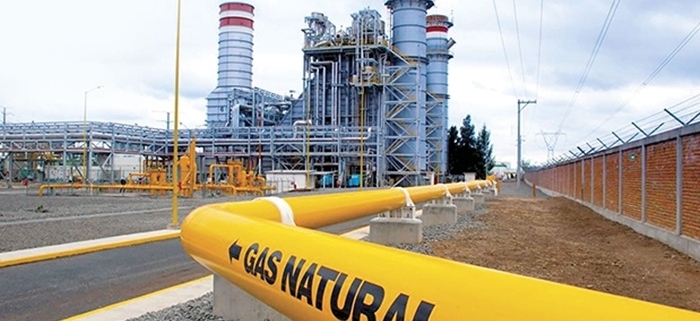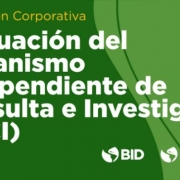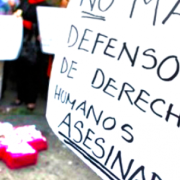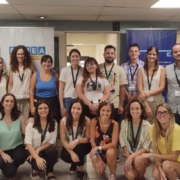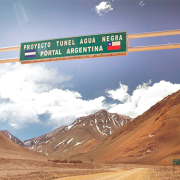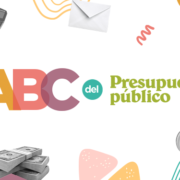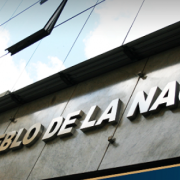Trunk gas pipelines: What will happen to the most vulnerable population?
The Comprehensive Gas Infrastructure Program – or the Trunk Gas Pipeline Program – promoted by the government of the Province of Córdoba, came to an end in 2019 with the completion of the works. By 2022, works continue at the municipal level, and the program has already begun its phase of connection to the natural gas network. However, there are still doubts about how citizens will be able to access the service, especially those who are located in vulnerable sectors.
“Below, we offer a google translate version of the original article in Spanish. This translation may not be accurate but serves as a general presentation of the article. For more accurate information, please switch to the Spanish version of the website. In addition, feel free to directly contact in English the person mentioned at the bottom of this article with regards to this topic”.
Access to public information and transparency are constituted as a fundamental human right. People have the right to know what will be planned for their communities and based on this, make informed and pertinent decisions about the development processes that will affect their lives.
In the field of public policies, providing and guaranteeing access to public information is the cornerstone of good governance. Transparency is vital to enable individuals and communities to hold their institutions accountable and to foster trust in government and reduce corruption. Ensuring this right results in the generation of opportunities for citizens to learn, grow and make better decisions for themselves and those around them.
Reference to this is relevant when analyzing public policies and programs that aim to contribute to large-scale development. Such is the case of the Comprehensive Gas Infrastructure Program promoted by the Government of the Province of Córdoba. This series of infrastructure works began in 2015 and ended in 2019, with the purpose of “strengthening the natural gas supply to homes, businesses and industries.” According to the Government, 890 million dollars were invested to deploy 2,801 kilometers of pipes that will give the possibility of connecting to the natural gas network to 972,430 Cordovans without service. However, the planning began long before the year of implementation and under sustained skepticism due to the lack of information and transparency regarding its financing, its potential environmental and social impacts, the number of total beneficiaries, among others.
After the end of the project in 2019, there were still doubts about what the connection process would be like for the localities and how citizens would have effective access to the service. Similarly, there were also infrastructure works to be completed at the municipal level. By July 2021, the Government declared that 75 localities already had access to natural gas after the trunk gas pipeline program. Mention was made of the number of inhabitants who will benefit, without regard to information regarding their location and other data that show whether the gaps in inequality in access have begun to close or may be closed as a result of this work. This is of vital importance since the government also spoke about the Bancor credit network for homes and businesses, which would facilitate the connection and obtaining the service. It remained to be seen how those marginalized and vulnerable groups who will find it difficult to access this benefit will be supported, and who therefore will not have access to natural gas -or will be able to do so in the distant future.
Towards 2022 the doubts regarding the scope of this project for the population of Cordoba have not yet dissipated. According to Cordoba news portals, the connection of companies and businesses to the natural gas network is progressing at a much faster pace than the connection of homes. This discrepancy arises more than anything else because connecting to the network is expensive and involves decision-making at the family level. Even when the conditions have been provided to facilitate access – through credits, and the now confirmed support from the provincial government for vulnerable families – not all people are in equal conditions to quickly decide to join the network. In many cases, the connection also requires the structural adaptation of houses and the purchase of household appliances.
Regarding the latter, access to information and transparency play a fundamental role. In the first place, because if the project had been published and socialized correctly with the populations of the affected localities, the families could have decided to plan in advance the connection to the network. Secondly, the role played by government officials when informing and publishing the documentation regarding a project of this caliber is evidenced. This was left in the hands of the municipal level and its mayors, and in many cases their actions to inform the population were deficient -especially considering that works have also been needed at the municipal level to guarantee the connection-.
The practice of publishing information such as the publication of documents does not mean or result in an informed citizenry. Added to the open data and active transparency initiatives are actions aimed at informing the population, such as public consultations. These spaces work -or should work- as opportunities to socialize information about projects and public policies, obtain feedback from citizens and work on a co-creation process. During the beginning of the work of trunk gas pipelines, a good part of the challenges identified had to do with the lack of public consultations -required by law- and the general misinformation of the people about the possible impacts and benefits of the project.
Towards 2022 there is no accurate information on the works carried out in the localities and the public consultations that have been carried out with neighbors. The existence of these instances play a crucial role in citizen decision-making. Especially in these cases when it is a duty to report on the project, warn of the impacts, clarify the benefits and clarify the alternatives that families would have to access the network gas service.
In this sense, even though the work of the Trunk Gas Pipelines represents a great advance for the Province of Córdoba, and the possibility of closing the inequality gaps in access to natural gas, the serious problems regarding access to public information still stand out, transparency and accountability. A project of this magnitude should have had clear and concise information for the population from the beginning, communication channels with citizens, much more transparent work award processes, etc. The process has not yet finished, and there is an opportunity for the provincial government to make an effort to make transparent what remains to be done.
More information
- Trunk gas pipelines: we make requests for information from agencies in the province of Córdoba
- Trunk Gas Pipelines and the difficulty of accessing public information in the province
- With the trunk pipelines concluded: positive or negative balance?
Author
Agustina Palencia
Contact
Gonzalo Roza, gon.roza@fundeps.org
*Photo taken from losprimeros.tv

